Dissecting I, CLAUDIUS: The History Behind the BBC’s Series

Outstanding acting combined with an exceptional screenplay based on Robert Graves’ book duology (I, Claudius and Claudius the God) creates a complete, grand, and moving work. But what else contributes to the enduring magic of this production starring Derek Jacobi.
I, Tiberius Claudius Nero Germanicus, and so on, and so on, who was recently known to friends, relatives, and acquaintances as Claudius the Idiot, Claudius the Stammerer, Clau-Clau-Claudius, or at best as poor Uncle Clau, begin writing the strange story of my life… I, Claudius.
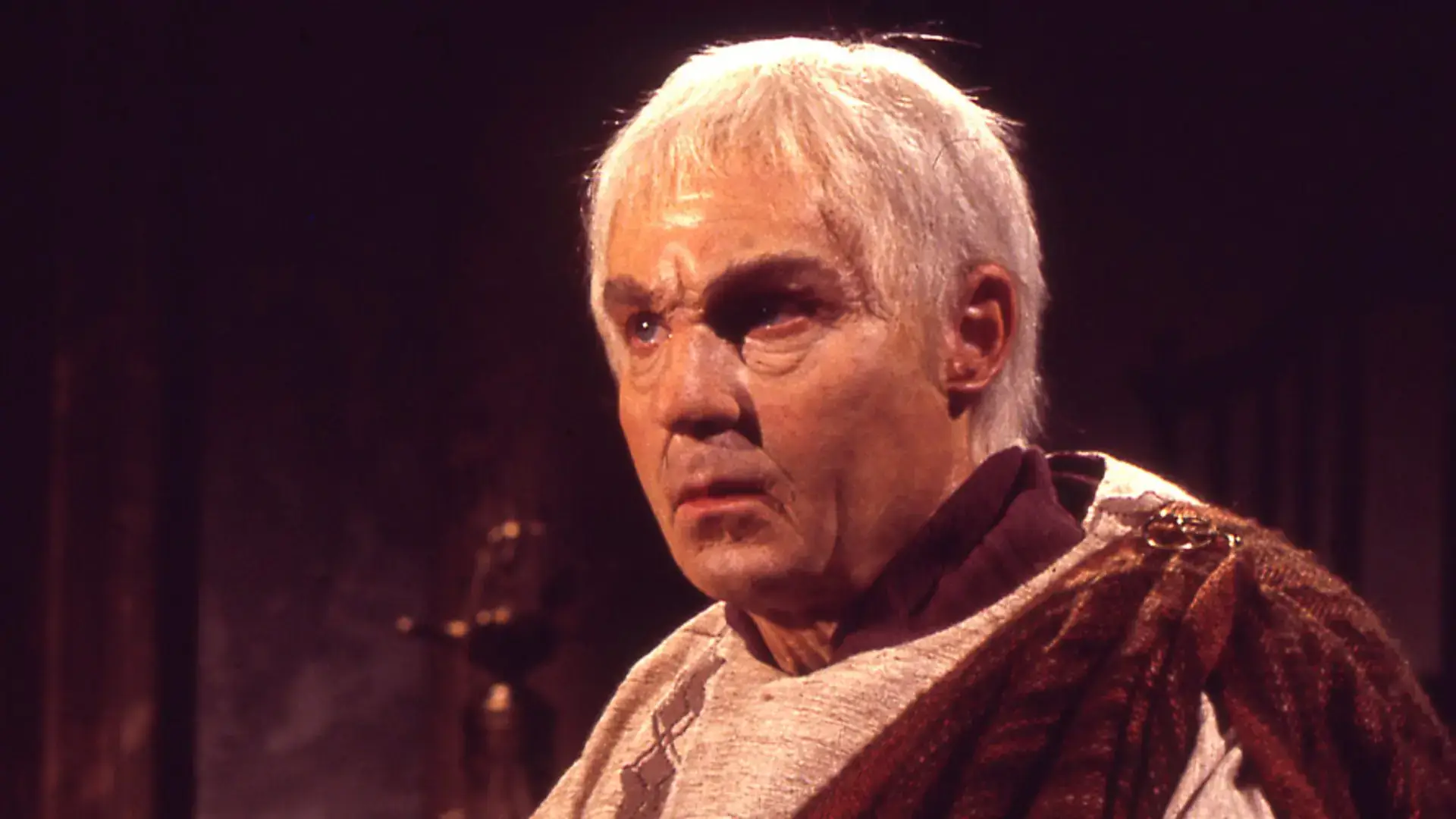
No one expected him to become the fourth emperor of Rome. He was relatively far down the line of succession, and most importantly, he was born with numerous physical disabilities. Claudius was partially deaf, limped, stammered, suffered from uncontrollable drooling and facial muscle spasms, had endured childhood paralysis, and faced a range of other afflictions that left their mark. The imperial family assumed that physical impairment implied intellectual inferiority. They treated him like an idiot: even his mother, Mark Antony’s daughter, called him a monster half-formed by nature. The young Claudius was kept away from public appearances to avoid tarnishing the dynasty’s honor and reputation with his repulsive appearance.
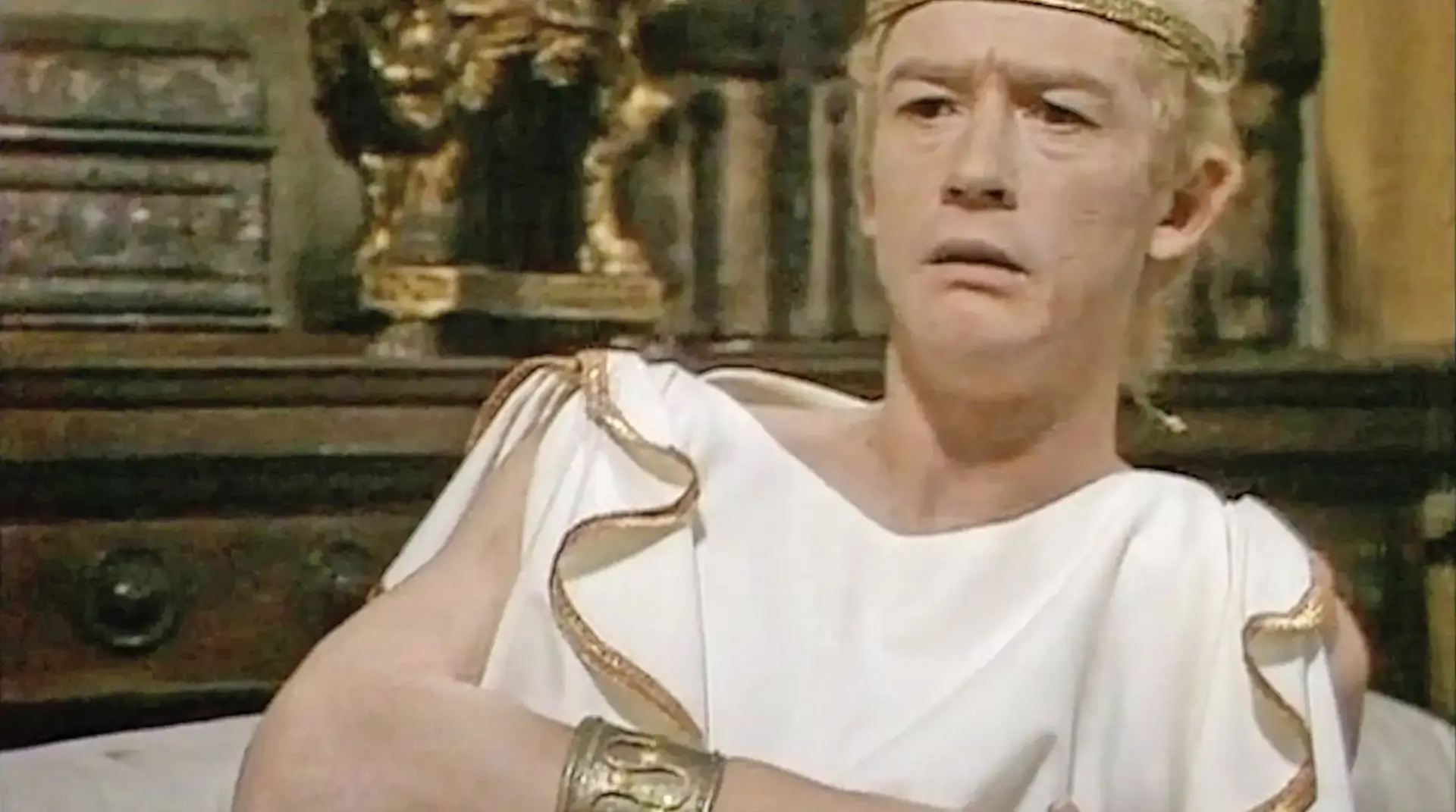
Left to himself, despised, shy, and lonely, the boy found solace in books and received an excellent education. Even when he became emperor, he considered himself primarily a historian. He was also the last known person to speak Etruscan, the language of a people who lived on the Italian Peninsula before the Romans. Staying in the shadows allowed him to survive through purges and conspiracies, enduring the reigns of Augustus, Tiberius, and the mad Caligula. When the latter was assassinated, and riots broke out, Claudius survived because no one remembered him—according to legend, he hid behind a curtain. After the slaughter, he emerged as the only adult male left from the Julio-Claudian dynasty, entitled to the throne.

By then, Claudius was considered old by ancient standards—he was fifty-one years old and physically weakened. The senators were pleased, thinking they had an emperor they could manipulate at will. They were wrong—years of observing from the sidelines, distrust of others, and accumulated wisdom made Claudius surprisingly effective as a ruler. Yet his reign was a constant struggle for respect, something even the military conquest of Britain couldn’t secure for him. To most senators, he remained Clau-Clau-Claudius, the laughingstock of Rome. His marriages proved equally disastrous: Messalina became a symbol of corruption and nymphomania, while Agrippina likely poisoned Claudius with a mushroom stew to place her son from a previous marriage, Nero, on the throne as Rome’s fifth emperor.

This, in brief, is the astonishing story of Claudius, dramatized by Robert Graves and brought to the screen in 1976 by the BBC team of director Herbert Wise and screenwriter Jack Pulman. Graves’ vision of ancient Rome is both authentic and true to historical sources, yet it features creative and original interpretations of events. The author—and the show’s creators—happily embrace Suetonius’ colorful gossip, incorporating outrageous anecdotes from the ancient historian’s works, such as Messalina’s infamous wager with a prostitute to see who could engage in sex the longest without a break. In Graves’ interpretation, Claudius emerges as a tragic figure and a Forrest Gump-like hero: unassuming and naïve, inadvertently becoming a participant in monumental historical events.
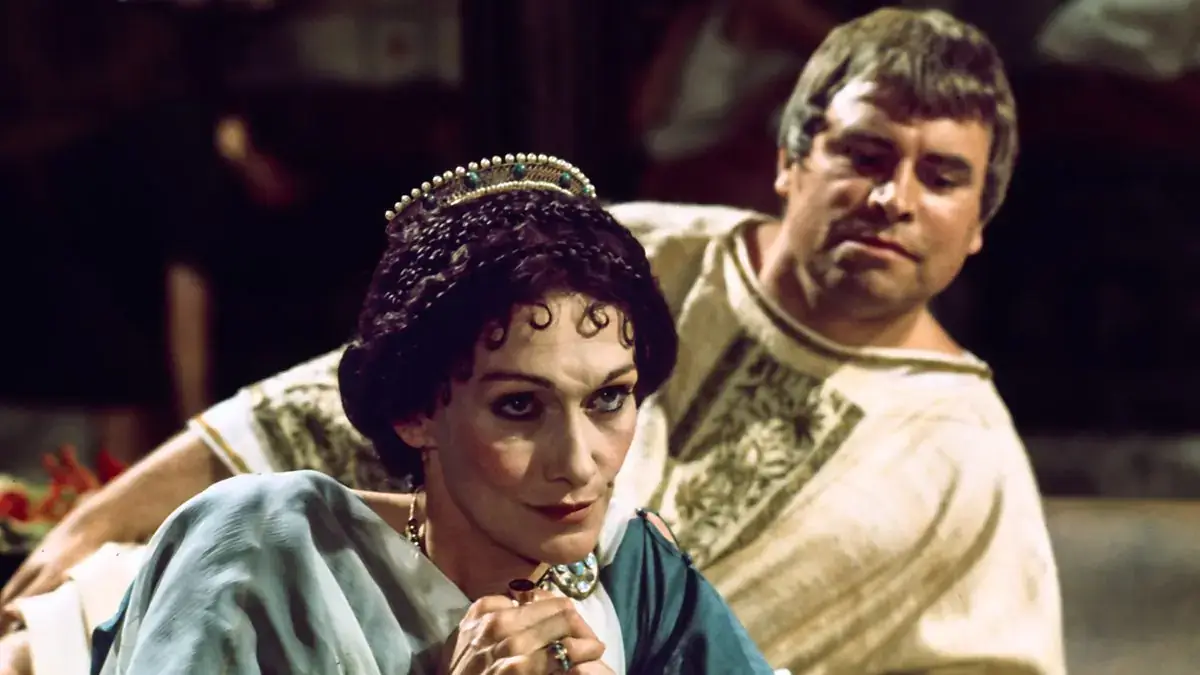
Jacobi almost missed out on this career-defining role. One early contender was Charlton Heston (!), but the Hollywood star thankfully couldn’t make time for Claudius. Jacobi was born for the part. His stammering, gestures, expressions, and voice timbre create a character that evokes both sympathy and admiration (those Senate scenes!), never descending into caricature. Viewers believe in Jacobi’s Claudius and care deeply about his fate. We want to protect this small, unloved boy whom no one expects to have a place at the imperial court. We root for him as he navigates the treacherous world of high politics and defies expectations by succeeding through his perceived harmlessness. We cry when he learns of Messalina’s betrayals and watch with concern as he succumbs to depression after her death, relinquishing power to Agrippina and ultimately being disposed of like unwanted furniture.
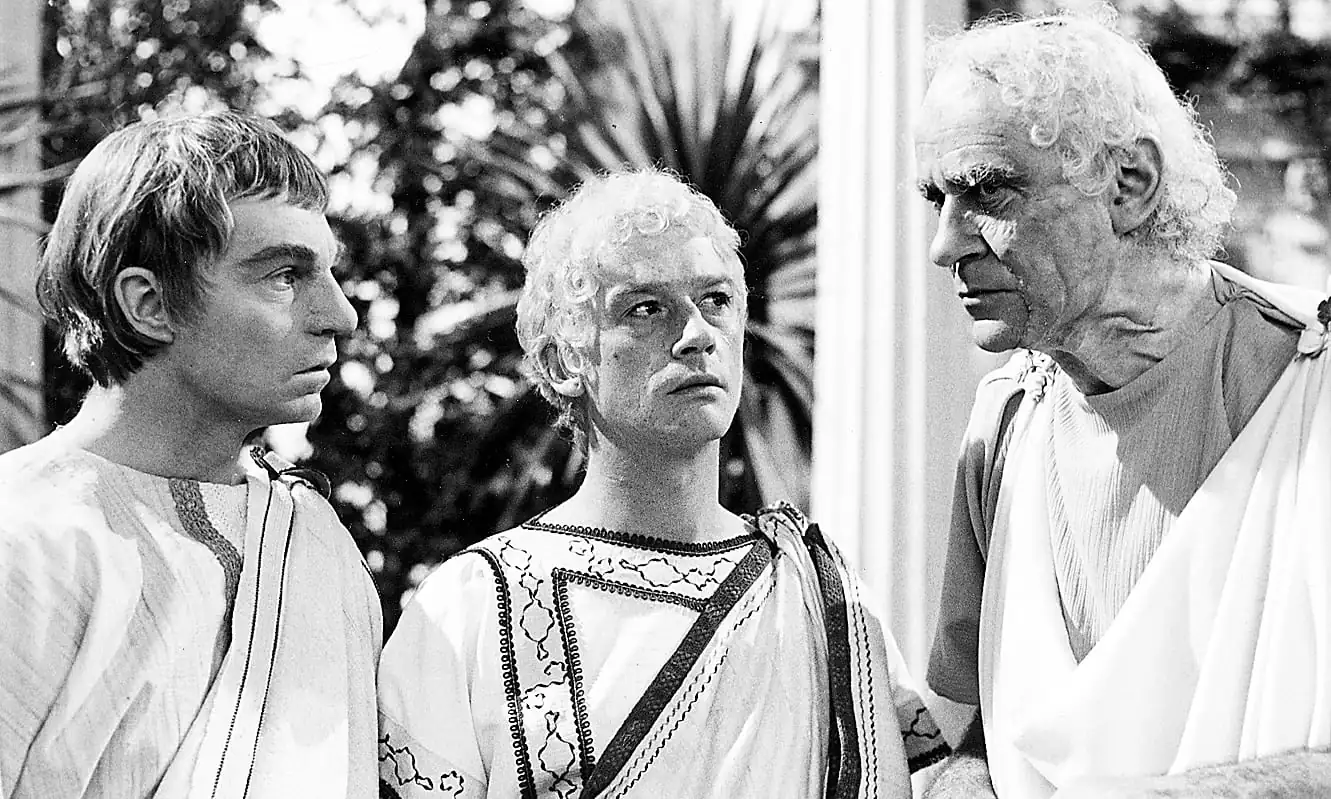
I, Claudius isn’t just about Jacobi’s remarkable performance—it’s a showcase for a whole gallery of vivid characters. Standout performances include Siân Phillips as the ruthless Livia and X-Men star Patrick Stewart as Sejanus, along with an array of other great British actors. John Hurt is mesmerizingly repulsive as the deranged Caligula. His every excess and act of madness carries an air of desperate tragedy and despair. In Hurt’s interpretation, Caligula becomes a symbol of the depravity that comes with absolute power. Sheila White’s portrayal of Messalina is also unforgettable. Her sweet, innocent face conceals something dangerous—it’s easy to see why Claudius falls for her and believes all her lies.

The set design and costumes are symbolic, with no special effects or explosions—but it doesn’t matter. I, Claudius is a story about people, not a spectacle with puppets. It’s a gripping portrayal of human passions: power, love, and cruelty. Watching this series feels like engaging with culture at its highest level—intelligent writing, beautiful language, fully realized characters, and exceptional acting. It’s an unapologetically old-fashioned tale (modern viewers might even call it outdated), unfolding slowly with dignified calm. I, Claudius is closer to theater than conventional television. Is it a TV theater production, then? Yes—at its finest.
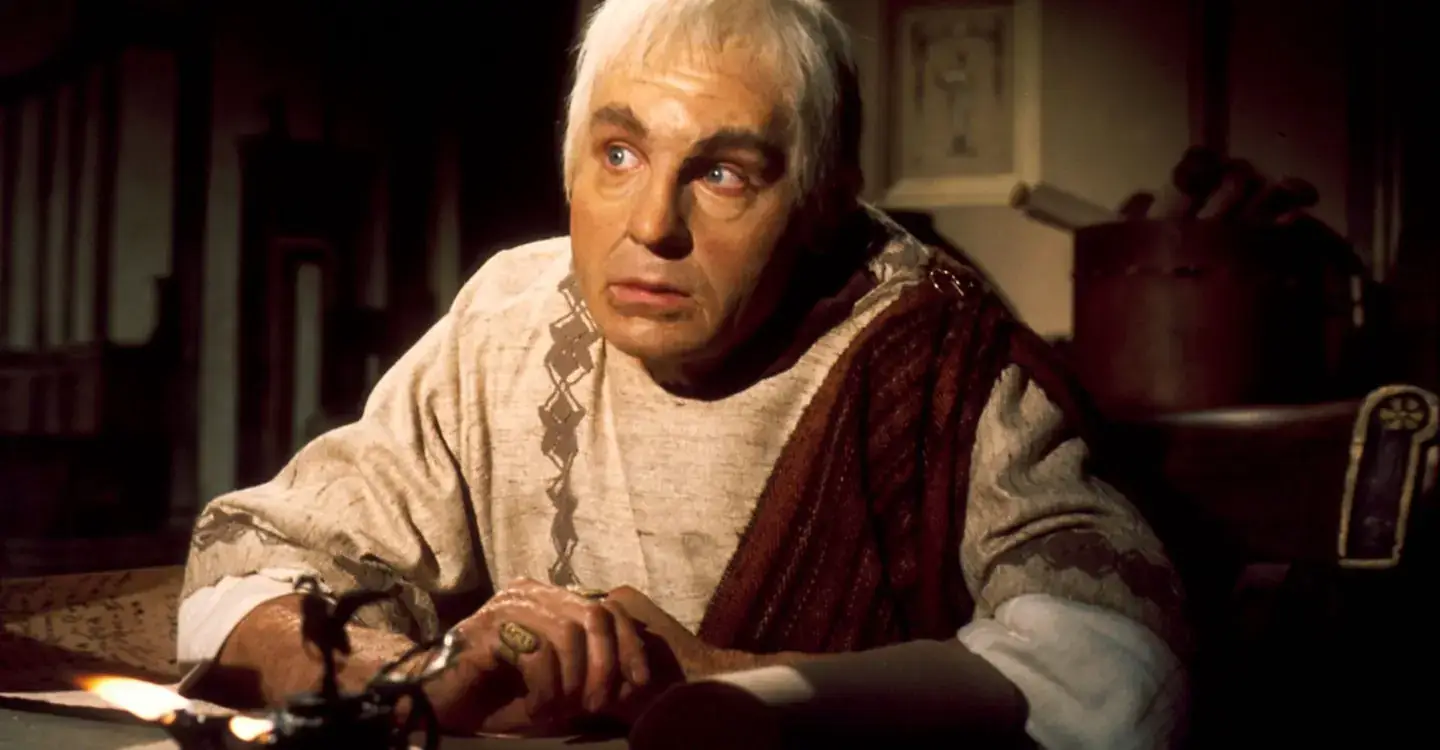
No grand spectacle is needed to bring the history of Rome to life. What’s required is deep understanding, thoughtful reflection, and the ability to extract something profound from history. The 13-episode BBC series achieves just that. History and politics enthusiasts will find satisfaction, intrigue lovers will be entertained, and melancholics will have plenty of moments for contemplation and tears.

